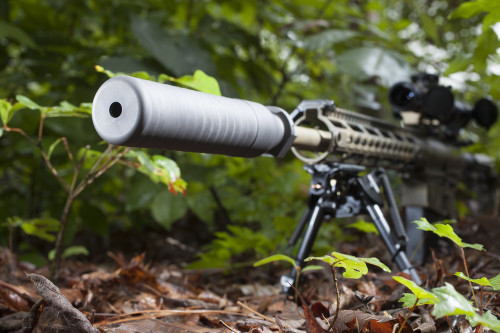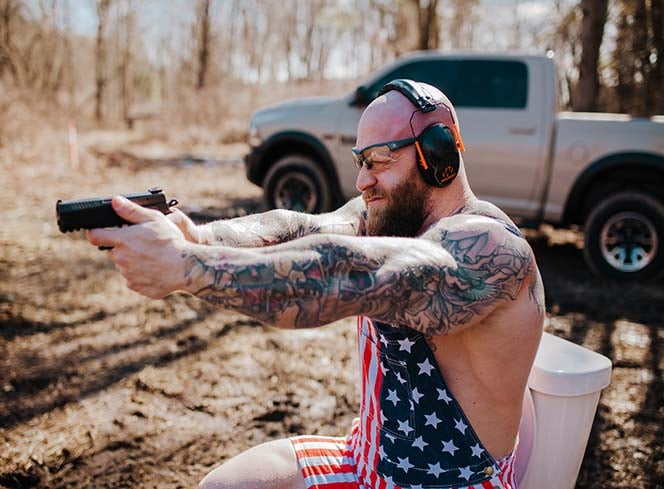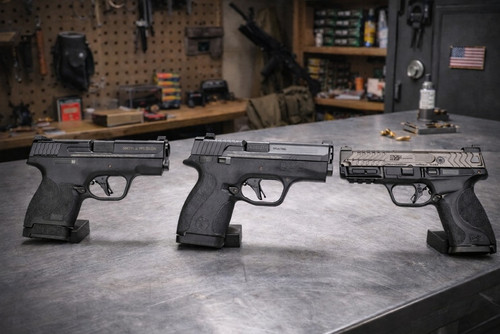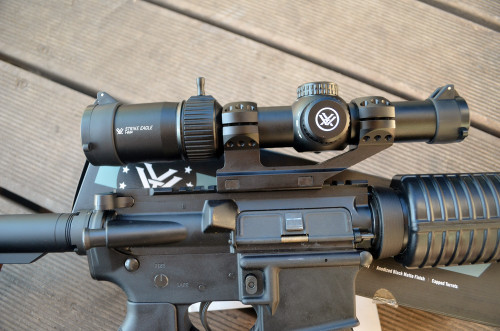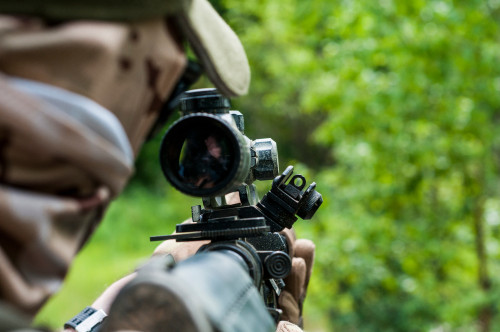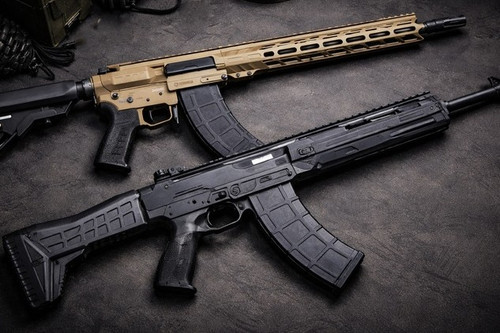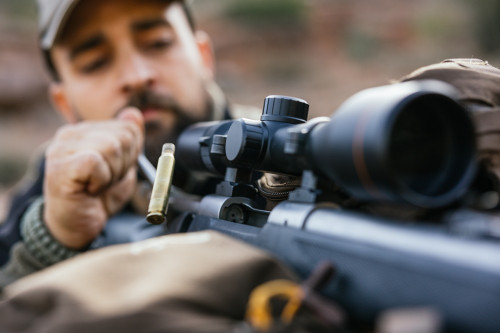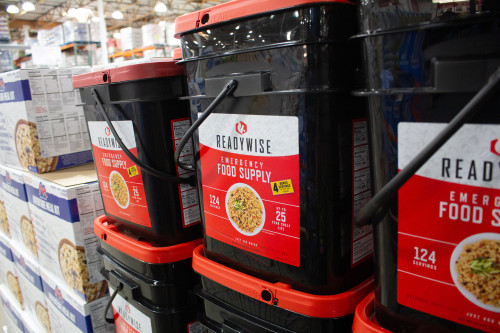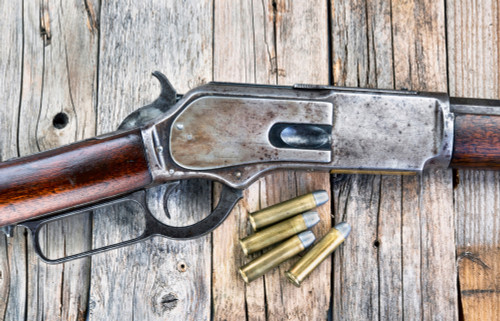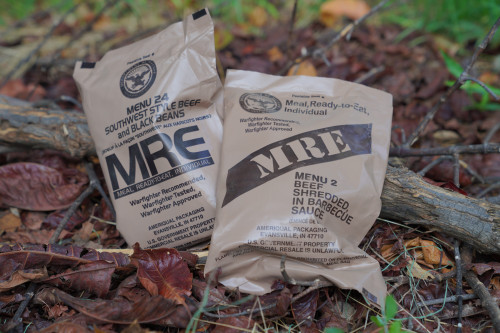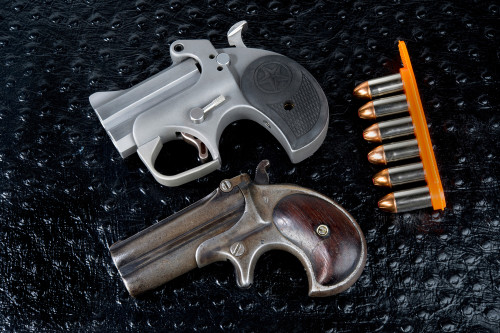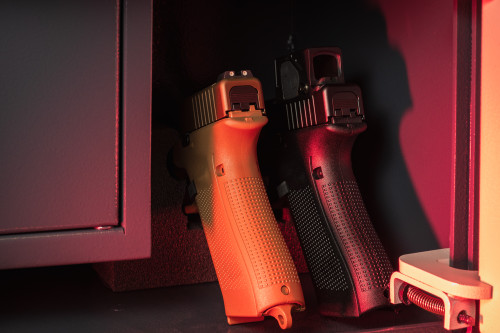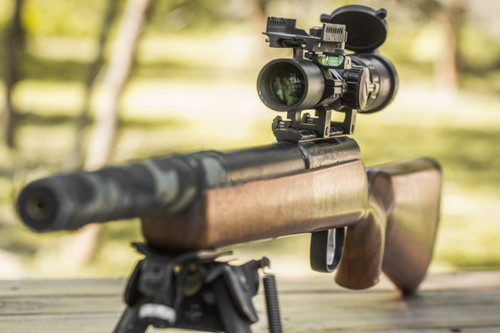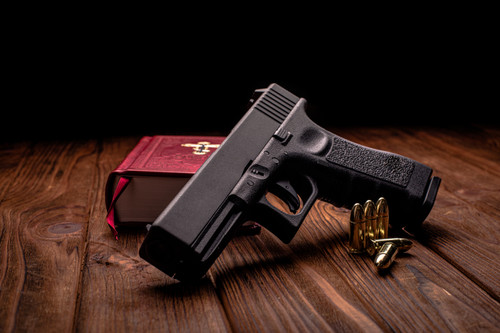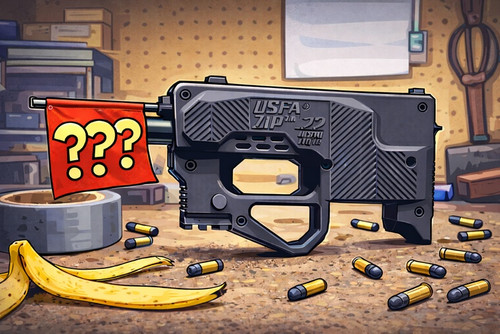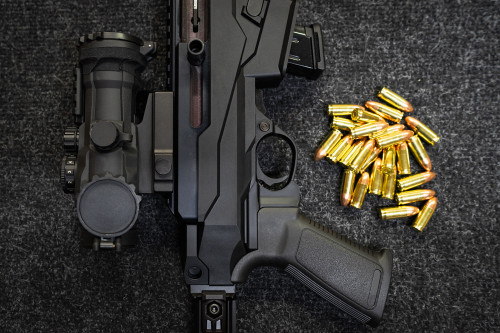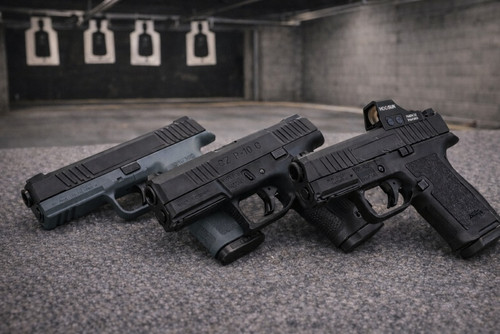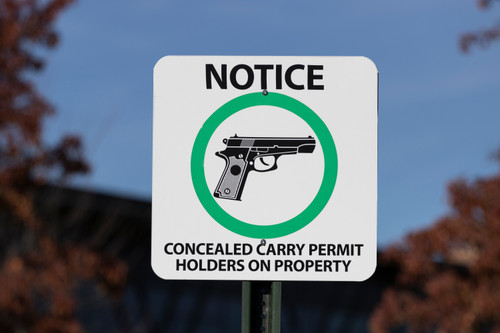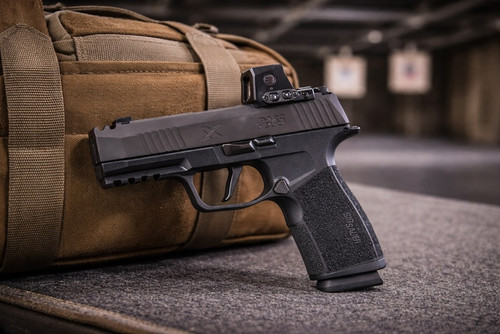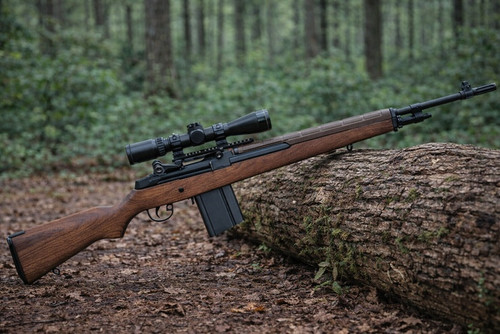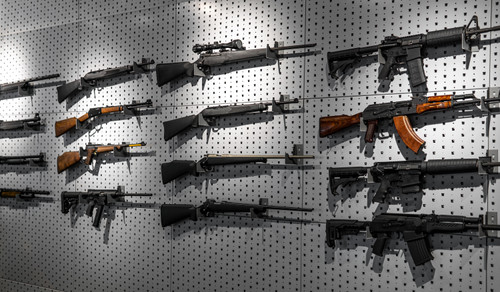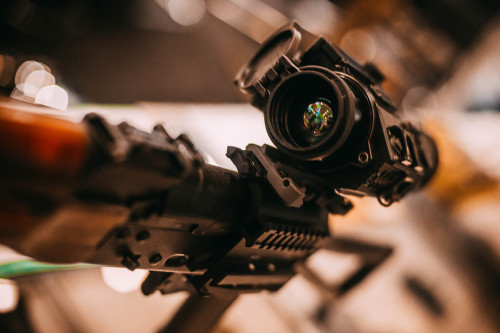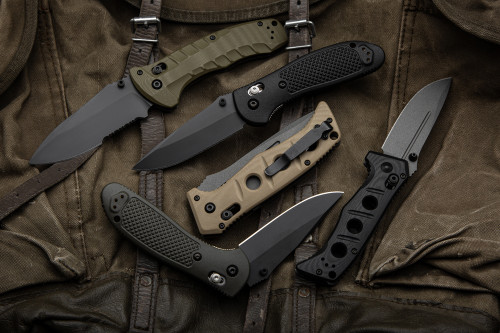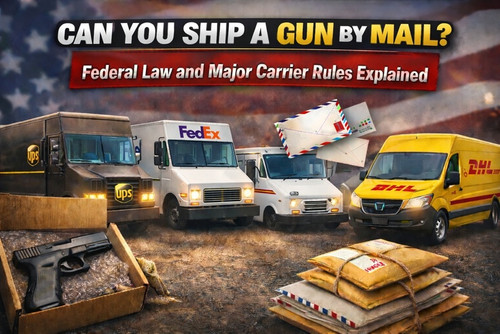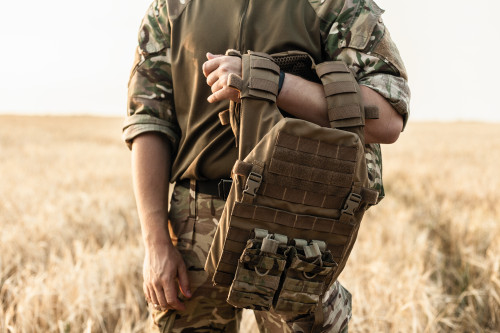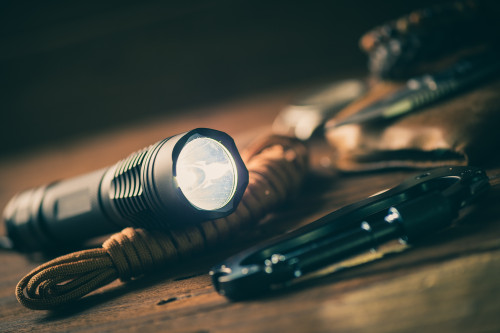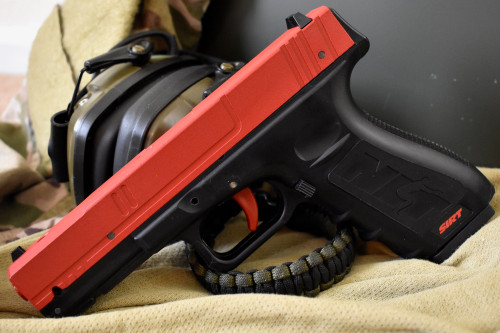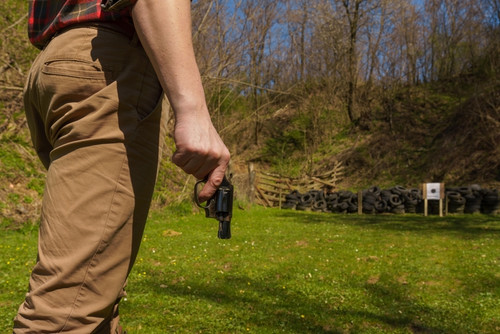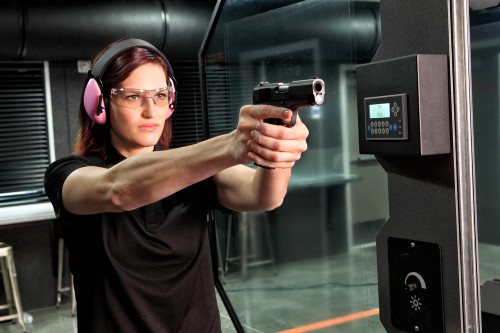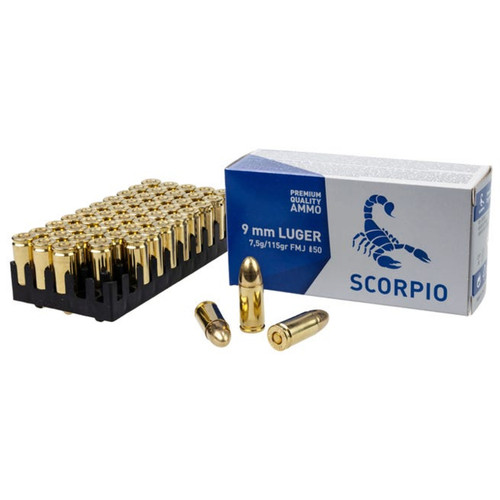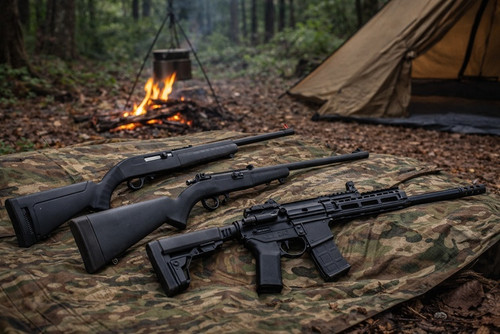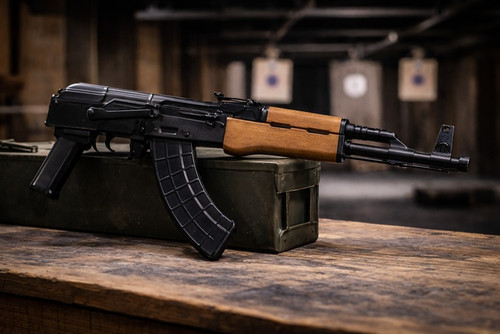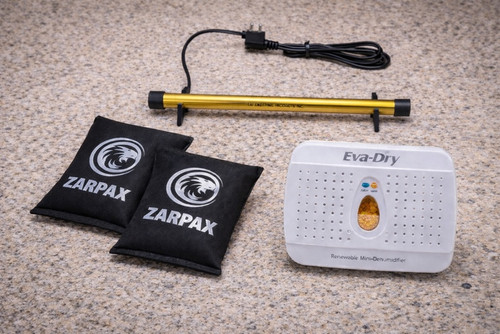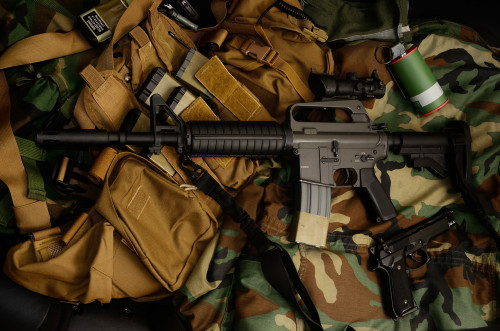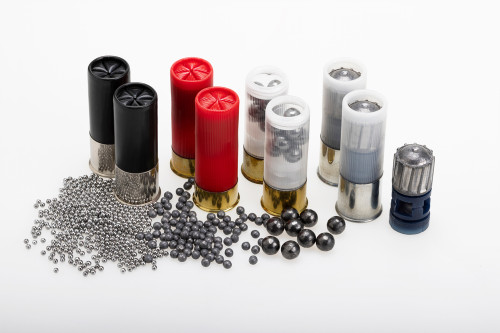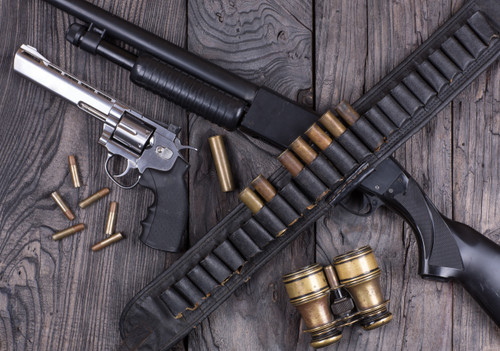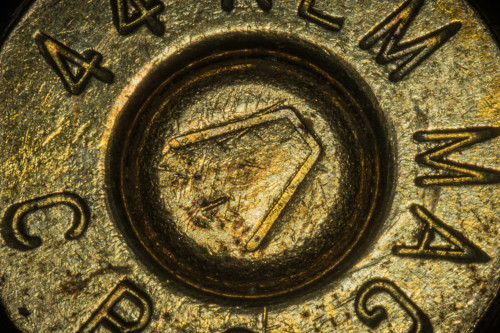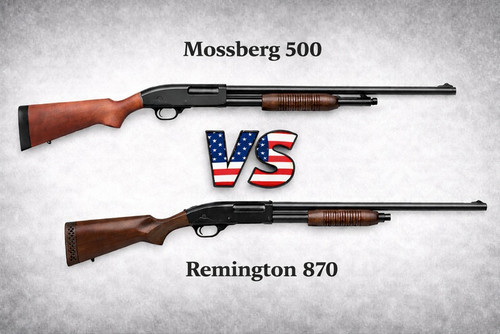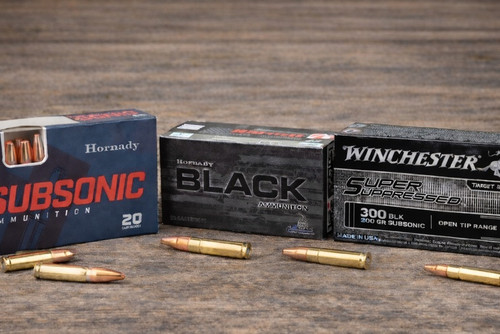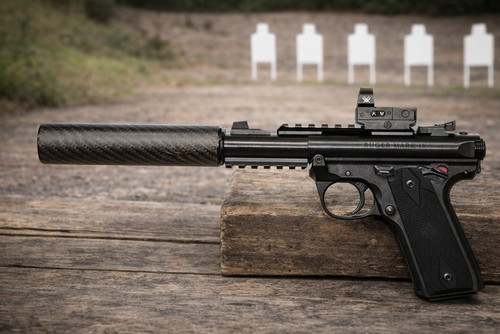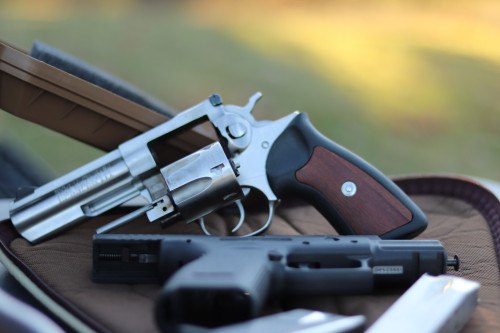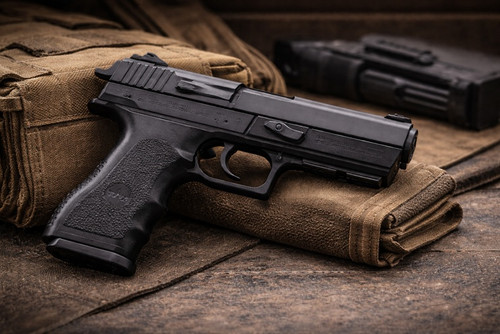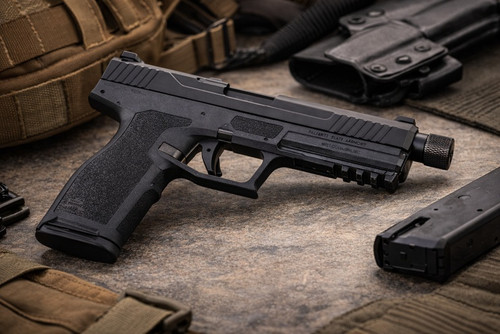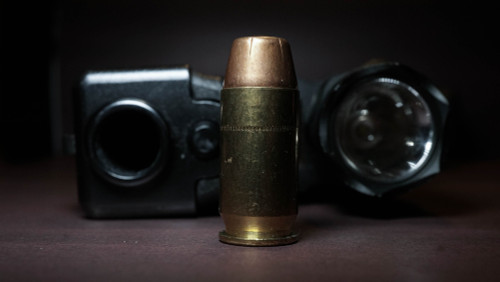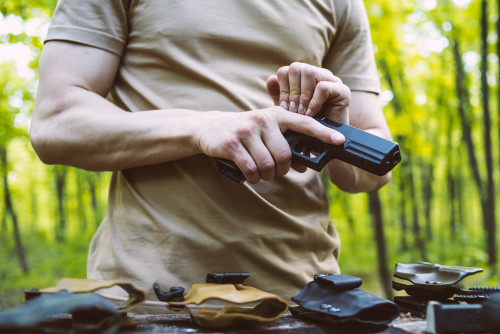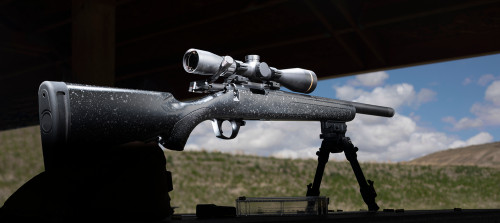The short answer: Not very.
Despite what Hollywood teaches us, it’s impossible to totally silence a gun. Instead, silencers (more accurately called suppressors) simply reduce the loudness of a gunshot. If your gun emits 160 decibels (dB) of noise, a suppressor can bring that down to about 120 dB. That’s still loud, but a significant improvement for hearing health and noise pollution.
But just to be clear, you can’t have a silenced gunfight in a crowded area with nobody noticing. Looking at you, John Wick.
Specifically, the effectiveness of a suppressor (and the overall loudness of a gun) depends on a variety of factors, including suppressor quality, ammo type, internal volume of the can, number of baffles, type of baffles, and the method of attachment to the firearm. It also depends on the application it’s used in. In this article, we’ll break down what a silencer (or suppressor) is, who might need one, how to get one, and just how quiet you can expect it to be.
What Is a Firearm Silencer?
It’s a magic tool that makes guns silent, right? Wrong. A silencer (or suppressor) is an attachment that threads onto the barrel of a firearm to reduce loudness when fired. This device is also (more accurately) called a suppressor, as it suppresses gunshot noise rather than silences it.
As an analogy, think about the muffler on your car. The muffler doesn’t make your car silent, but it drastically reduces engine noise, which is good for you and everyone else in your neighborhood. A firearm suppressor serves a similar purpose by reducing noise rather than eliminating it completely.
Who Needs a Silencer?
Every firearm user would benefit from owning and using a silencer. Despite popular myths about suppressors as tools for stealthy assassination, the actual value of a suppressor is much more mundane and practical. Suppressors help reduce hearing damage and limit noise pollution.
Good for Reducing Hearing Damage
Guns are loud. One of the biggest dangers of regular firearm use is permanent hearing damage. Even with ear protection, consistent shooting can harm your hearing. By reducing loudness, suppressors can reduce the impact of firearms on hearing health.
With particularly loud guns and ammo, using a suppressor along with ear protection helps protect your hearing even more. For example, reducing loudness from 160 dB to 120 dB may not seem like much, but you need to remember two important things:
- The dB scale is exponential - It’s similar to the Richter scale used to measure earthquakes. This means every 10 dB increase results in 10 times more sound, so every dB reduced is a significant improvement.
- It’s a bigger problem the more you shoot: Even average gun owners will likely shoot thousands of rounds over a lifetime. Reducing loudness by even one dB could have a cumulative beneficial effect when compounded over years of shooting.
Good for Situations Without Hearing Protection
While most responsible gun users shoot with hearing protection, it’s not always practical or optimal to wear. In a home defense situation, you likely won’t have time to put on your hearing protection, and for some of you, that may not bother you. For those of you who are not trained for such a situation, your hearing is imperative for situational awareness and communicating with your family to get them to safety.
Think about it: your family probably isn't used to a gun going off indoors. If that’s the case, the loud noise, along with the threat of the situation, will trigger a Fight, Flight, or Freeze reaction. If the firearm is discharged, your family might not be able to hear your commands to get to safety — but with a suppressor attached you your firearm, the reduced noise will help them hear you much better.
Hunting is another situation where you might need to hear what's going on but still need to reduce the loudness of your gun to protect your hearing. It will also help you avoid disturbing wildlife as much, which is good for both the other hunters in the area and the wildlife.
Good for Reducing Noise Pollution
Guns are much louder than anything most people encounter in daily life. So unless you live on a farm in the countryside, firearm noise is always an issue. Outdoor ranges can be a nuisance for nearby communities due to noise pollution. Using suppressors on the range can help reduce noise and make nearby communities much happier.
How Does a Silencer Work?
The way a silencer works is actually pretty simple: When a gun is fired, the primer ignites the gunpowder and triggers an explosion inside the chamber of the firearm. This explosion of hot gas travels rapidly, propelling the projectile out of the barrel and escaping in the form of the loud bang we associate with a gunshot. Suppressors work by slowing and cooling this expanding gas, which reduces the sound of the bang.
However, there are a lot of factors that affect how the silencer works, and to what extent. Here’s an overview of how changing even one factor can affect the performance of a silencer.
Suppressor Internal Space
Typically, the suppressor has a volume ranging between 20 to 30 times greater than the gun barrel. More space inside the can (the cylindrical housing containing the internal parts of a suppressor) allows the hot gasses and pressure generated by a shot to expand and cool even more before being released. More space to cool and expand means less noise and pressure, leading to a much quieter shot.
Baffles
Typically, a suppressor is composed of a metal tube filled with various chambers and baffles that redirect hot gas into what is basically a maze. As it travels through this maze, it releases sound and heat energy more slowly than it would if it exited the gun immediately. The more baffles, the more opportunities there are for hot gasses and pressure to be redirected and slowed down, reducing the noise of the shot.
The type of baffle used can also impact suppressor performance. Internal baffle chambers are usually made of metal, but can also be made of foam or wire mesh. They can come in different shapes and designs, which can affect how they interact with pressure and hot gasses. Some baffles are designed to redirect these forces, while others are designed to slow them down and dissipate their energy.
While traditional baffles sometimes release toxic gasses that affect both the shooter’s health and the gun’s performance, new suppressor technology is changing all of that. Patented Flow-Through® technology by HUXWRX directs hot gasses and pressure forward, away from the bore line (and the shooter) using a system of coils and deflectors inside the suppressor. The result is a less dangerous suppressor that meets both military and OSHA safety requirements to protect hearing, usable without any modifications to the firearm.
Suppressor Quality
Any solution that can slow down and cool gas has probably been tried at some point, but as with everything else related to firearms, quality matters. Higher-quality suppressors are made with more precision and better materials, so you get better suppression given any size or weight option you choose.
However, when it comes to loudness, the gun and suppressor are only part of the equation. The type of ammo you use also plays an important role.
Firearm Silencer Technical Analysis
To get a better idea of how silencers might perform in reality, we need to perform technical evaluations with our guns and ammo.
The following evaluations are just general guidelines based on averages collected from several different reports. To really understand the performance of your gear, you need to run tests yourself.
.22 Rifle
When fired from an unsuppressed rifle, .22 rounds produced an average of around 140 dB. A suppressor was able to suppress loudness to 115 dB, which is a notable 25 dB reduction.
Remember, the .22 is the quietest round the average gun owner might encounter. Even when suppressed, it’s still loud enough to damage your hearing if subjected to repeated exposure.
.308 Rifle
When fired from an unsuppressed rifle, .308 rounds produced an average of 170 dB. With a suppressor, the loudness reduces to an average of 150 dB. This is still loud enough to do serious damage to your hearing, so ear protection is still required.
Longer barrels tend to have slightly lower dB readings, as the volume of the barrel itself provides some of the function of a suppressor. However, this effect is usually canceled out by the high-powered rounds commonly used in rifles.
9mm Handgun
When fired from an unsuppressed handgun, 9mm rounds produced an average of 165 dB. Adding a suppressor reduced loudness to an average of 135 dB.
As this is the most common round used for home defense, a suppressor can have a significant impact on loudness in a situation where you might need to use a handgun to defend your home.
This isn’t just a matter of “who cares about my ears when there’s a goblin in my living room.” An extremely loud sound when you just awoke from total silence can be disorienting and may reduce your ability to defend your home effectively. Remember, you need every possible advantage in a self-defense scenario.
.45 ACP Handgun
When fired from an unsuppressed handgun, .45 ACP rounds produced an average of 165 dB (similar to the 9mm), but the addition of a suppressor was only able to reduce loudness to an average of 145 dB.
As .45 ACP is also a common home defense round due to its stopping power, it’s important to analyze the tradeoff of the louder round. What’s more important? Only you can answer that based on your specific circumstances.
Other Factors
While the gun, the rounds, and the suppressor are the most important factors determining loudness, other factors matter as well. Are you shooting in an open field or in an apartment? Is the air moist or dry? Sound is affected by most environmental factors, so the real-world performance of your suppressor will be affected by the environment as well.
What Is the Best Ammo To Use With a Silencer?
As always, it depends. When it comes to firearms, we are often dealing with small margins of error. Achieving a particular effect or outcome usually requires some tradeoff in performance. To achieve a quieter shot, you’ll often need to reduce the speed of the bullet.
The speed of sound at sea level is about 1,125 feet per second (though this can vary based on environmental factors). If a bullet travels faster than sound, it will create a sonic boom, which is incredibly loud — even with a silencer. To avoid this sonic boom (more like a “crack,” really), you’ll want to use subsonic ammo. Of course, there is a tradeoff here: to achieve a slower exit velocity, you need to lose some power on the round. Less power means less accuracy and stopping power, especially at long distances.
If that’s the case, why would anyone make that compromise? That’s a valid question, but keep in mind that sometimes less noise is more important than accuracy and stopping power. Hunting, target shooting, and home defense all might include scenarios where reducing the loudness of the round takes priority over marginal improvements in power and accuracy.
What Kind of Subsonic Ammo is Available?
Some rounds are naturally subsonic due to the relationship between the size of the bullet and the amount of powder in the shell, while others have been deliberately slowed by replacing the standard bullet with a heavier version to reduce muzzle velocity.
Here are some examples of subsonic rounds:
- Federal American Eagle 300 AAC Blackout 220 Grain Subsonic Open Tip Match: This 7.62 round is ideal for hunting with a suppressor. The 300 Blackout was developed for the military to use in a suppressed M4, but today makes an excellent subsonic option for hunters.
- Remington 22 Long Rifle Subsonic 40 Grain Copper Plated Hollow Point: This .22 hollow-point round was specifically designed to be paired with a suppressor, making this pretty much the quietest round you can get.
- Ammo Inc. 45 Auto ACP 230 Grain Jacketed Hollow Point: Like most .45 ACP, this hollow-point round is naturally subsonic (895 feet/second muzzle velocity) andt an ideal option for a silenced home defense firearm.
That said, maybe you can’t afford any performance tradeoff. In that case, stick with your standard high-powered ammo — a suppressor can still help reduce loudness, which can have significant value over time.
Always remember to test new ammo and accessories before you rely on them in a real-world scenario. When it comes to guns, Murphy’s law always applies: anything that can go wrong will go wrong (most likely at the worst time). Test all new gear and ammo before you put yourself in a situation where you can’t afford to fail.
Can I Legally Own a Silencer?
Yes, but it’s harder than you might think to buy one due to a variety of cultural and legal factors. Popular misconceptions about silencers have affected policy and legislation. To many, silencers are perceived as assassination tools to be regulated instead of being widely available accessories that can improve every part of the shooting experience.
Silencers (suppressors) are legal in 42 states, and each state has specific laws and regulations regarding use and ownership. Of course, the ATF regulates suppressors under the National Firearms Act (NFA). The NFA was designed to control certain weapons deemed unfit for civilian use (e.g. automatic rifles) — and suppressors got lumped in.
The ATF requires an extensive nine-month background check to legally buy a suppressor. They also require owners to:
- Be 21 years old (18 for military and law enforcement)
- Be a resident of the state of purchase
- Provide a photo and fingerprints
- Pay a $205 transfer tax
- Complete ATF Form 4
Be sure to check state and local laws surrounding suppressors in your area so you remain in full compliance with the law. For legal help purchasing suppressors in your area, suppliers like Silencer Shop and Silencer Central offer a ton of services to help you get the accessories you need without jumping through so many hoops.
Final Word
While guns can’t be silenced, they can be suppressed. This can be beneficial to the ears of the shooter and those of anyone else nearby. Even though it can be a hassle to get one, using a silencer can significantly reduce the negative impacts shooting has on ear health. If you plan to shoot a lot, we recommend looking into acquiring a suppressor for your armory.
Pro Armory offers a great selection of subsonic ammunition to help you keep your shooting experience as quiet as possible. Whether you're shooting for sport, hunting, or protecting your home, Pro Armory has the ammo you need to make your gun as quiet as it can be.
As a veteran-operated company, we stand by every product we sell because we know your life may depend on it. Browse our online store to find great ammo and firearm accessories at an affordable price.



